|
Shout, O Israel! God Loves You!
They are a minority. They always have been a minority. Moses, their first national leader, described them as “the least of all peoples” (Dt. 7:7); and that assessment remains true today, more than 3,500 years later. Among the world’s population of approximately 7 billion, they are a mere handful: 14 million to 15 million, a scant one-fifth of one percent. In fact, they are so few in number that some cities have greater populations than there are Jewish people in the entire world. Yet Jewish people have made an enormous impact on the world because of a legacy that began more than 4,000 years ago when God entered into a unique relationship with Abraham in Ur of the Chaldeans. Though circumstances have changed, God does not change. He loved the Jewish people in ancient days, and He loves them today. Unsolicited Love Abraham’s relationship with God was not a modification or evolution of anything else around him. It was distinct from everything. When Abram (later called Abraham) obeyed God’s call, he not only walked away from a sophisticated, cosmopolitan city, but he also turned his back on the prevailing worldview and entered into a unique relationship with the one true God. The apostle James in the New Testament recognized this relationship: “‘Abraham believed God, and it was accounted to him for righteousness.’ And he was called the friend of God” (Jas. 2:23). No one else in Scripture can claim this title, and God’s enduring relationship with Israel is founded on His unsolicited friendship with Abraham. On the basis of that friendship, God confirmed an unconditional, unilateral covenant with Abraham that would be reiterated to Abraham’s son Isaac and his grandson Jacob, the father of the 12 tribes of Israel. Confirmation of the covenant followed the cultural protocol of the day. At God’s request, Abraham brought a three-year-old heifer, a she-goat, and a ram, along with a turtledove and a young pigeon. As prescribed, he cut the offerings into halves and laid them in a line with each half opposite the other (Gen. 15:9–10). The ceremony, referred to as “cutting a covenant,” required the responsible parties to walk the line between the halves of the animals spread before them. After causing a deep sleep to fall on Abraham, God alone walked the line. The Bible says God “appeared [as] a smoking oven and a burning torch that passed between those pieces” (v. 17). God thereby established Himself as the sole party responsible for keeping the covenant with Abraham and subsequently with the nation of Israel. Unending Love The psalmist encapsulated the magnitude of the covenant: "He remembers His covenant forever…the covenant which He made with Abraham, and His oath to Isaac, and confirmed it to Jacob for a statute, to Israel as an everlasting covenant” (Ps. 105:8–10). The Hebrew word for “remembers” is in the perfect tense, signifying a “practically pledged certainty.”1 It is a covenant validated by God’s eternality. Later Moses, Israel’s first national leader, emphasized God’s covenant relationship with the nation and highlighted an overlooked essential. As the nation gathered at the banks of the Jordan River, preparing to enter the land God promised Abraham and his offspring through Jacob, Moses reminded the Israelites, The Lᴏʀᴅ did not set His love on you nor choose you because you were more in number than any other people, for you were the least of all peoples; but because the Lᴏʀᴅ loves you, and because He would keep the oath which He swore to your fathers (Dt. 7:7–8). God’s ongoing relationship with Israel is based on more than a covenantal requirement; God voluntarily chose to love the Jewish people in perpetuity: “For the mountains shall depart and the hills be removed, but My kindness shall not depart from you, nor shall My covenant of peace be removed,” says the Lᴏʀᴅ, who has mercy on you (Isa. 54:10). Unconditional Love The Bible gives an honest account of Israel’s history—failures and all. Yet despite the nation’s waywardness, the Bible teaches that God’s love has remained constant. The prophetic book of Hosea, a chronicle of Israel’s infidelity, concludes with God’s plea, “O Israel, you are destroyed, but your help is from Me. O Israel, return to the Lord your God” (13:9; 14:1). God pledges, “I will heal their backsliding, I will love them freely” (v. 4). Both the Assyrian and Babylonian captivities were a consequence of national disobedience. Yet even while the Israelites were exiled in Babylon, God reassured them through the earlier ministry of the prophet Isaiah, "Fear not, for I am with you; be not dismayed, for I am your God. I will strengthen you, Yes, I will help you, I will uphold you with My righteous right hand” (Isa. 41:10). Through the prophet Jeremiah, God told them, “yes, I have loved you with an everlasting love; therefore with lovingkindness I have drawn you” (Jer. 31:3). The message of God’s love for Israel runs consistently throughout the Bible. He has vowed to fulfill His covenant to Abraham in the last days and initiate a new covenant: "I will forgive their iniquity, and their sin I will remember no more” Quoting God’s message to Israel through the prophet Amos, the apostle Paul declared, “The Deliverer will come out of Zion, and He will turn away ungodliness from Jacob; for this is My covenant with them [Israel], when I take away their sins” (Rom. 11:26–27). Love was at the heart of God’s attitude toward Israel in the past, and it is at the heart of His attitude toward it today: “Whenever I have turned against him [Israel], my thoughts would dwell on him still, that is why my heart yearns for him; I will receive him back in love declares the Lᴏʀᴅ” (Jer. 31:20, JPS). God’s love will continue to characterize His dealings with Israel in the future. Looking forward to that reality in the Messianic Kingdom, the prophet Zephaniah declared, Sing, O daughter of Zion! Shout, O Israel! Be glad and rejoice with all your heart, O daughter of Jerusalem! The Lᴏʀᴅ has taken away your judgments….You shall see disaster no more. The Lᴏʀᴅ your God in your midst, the Mighty One, will save; He will rejoice over you with gladness, He will quiet you with His love, He will rejoice over you with singing (Zeph. 3:14–15, 17). Just look at the modern state of Israel, which is evidence of God's care and provision. God cares so much about unsaved people—Jewish and Gentile—that He sent Jesus to die for them, that they might be forgiven and have everlasting life. God's love is a redeeming love. The fact that God is in the redemption business is the main message of the Good News! And it is why Israel’s past has not negated its future, and why our past does not negate our future. God explains the driving force in His dealings with Israel: “But you, Israel, are My servant, Jacob whom I have chosen, the descendants of Abraham My friend” (Isa. 41:8). Down through the centuries of Israel’s existence, regardless of the circumstances, God’s message to the Jewish people has been consistent. He tells them now--and will tell them forever--I love you. and so, Jesus is the Messiah that the Jews had been anticipating for centuries! (see Luke 2:25; 3:15). As such, He was born into a Jewish family and was reared according to Jewish law in a Jewish town (see Luke 2:27; Galatians 4:4). Jesus selected Jewish disciples, spoke in Jewish synagogues and the Jewish temple, and traveled mostly in Jewish areas. His mission, in fulfillment of the Jewish prophets, was to the Jewish people. However, none of this means that Jesus’ ministry was limited exclusively to the Jews. In Matthew 15, there is an incident that, at first, seems to confirm the idea that Jesus came only for the Jews. Jesus was traveling through Tyre and Sidon, a Gentile region, and “a Canaanite woman from that vicinity came to him, crying out, ‘Lord, Son of David, have mercy on me! My daughter is demon-possessed and suffering terribly’” (Matthew 15:22). This Gentile woman recognized Jesus as the Messiah (“Son of David”), but “Jesus did not answer a word” (verse 23). As the woman kept up her appeals, Jesus finally responded, but His words seemed to hold little hope: “I was sent only to the lost sheep of Israel” (verse 24). However, the woman did not give up, and Jesus eventually granted her request, based on her “great faith” (verse 28). The fact that Jesus helped the Canaanite woman, even though His mission was to the Jews, is a significant detail in the Gospel narrative. Throughout His earthly ministry, Jesus gave other indications that His power and compassion reached to all people. He healed a Roman centurion’s servant (Luke 7:1–10). He traveled through the Gentile region of the Genisis (Mark 5:1). He ministered in a Samaritan city (John 4). Jesus came to save everybody (1 John 2:2). Jesus Christ is God Himself (John 1:1). Jesus died on the cross as the payment for all our sins, and He rose from death in resurrection (1 Corinthians 15:3–4). Jesus said He was the Good Shepherd, and He predicted that His flock would be greatly expanded: “I have other sheep that are not of this sheep pen. I must bring them also. They too will listen to my voice, and there shall be one flock and one shepherd” (John 10:16). It took a while for the early church to recognize that salvation was available to the Gentiles. The Jewish Christians who fled the persecution in Jerusalem went into the Gentile regions of Phoenicia, Cyprus and Antioch, but they were “spreading the word only among Jews” (Acts 11:19). Peter was hesitant to bring the gospel to a Gentile household, but God made it plain that Cornelius was also one of the elect (Acts 10). “Is God the God of Jews only? Is he not the God of Gentiles too? Yes, of Gentiles too” (Romans 3:29). Jesus is the Jewish Messiah, but He had come to offer salvation to everybody. The Messiah was to be a “light for the Gentiles” (Isaiah 42:6). So call on Jesus, because “everyone who calls on the name of the Lord will be saved” (Acts 2:21). https://ourdailybread.org/article/jesus-said-i-am-the-way-the-truth-and-the-life/ I am the way and the truth and the life is one of the seven “I Am” statements of Jesus. On the last night before His betrayal and death, Jesus was preparing His disciples for the days ahead. For over three years, these men had been following Jesus and learning from His teaching and example. They had placed their hopes in Him as the Messiah, the promised deliverer, yet they still didn’t understand how He was going to accomplish that deliverance. After the Last Supper, Jesus began speaking about His departure, which led to questions from His disciples. In John 13:33, Jesus said, “My children, I will be with you only a little longer. You will look for me, and just as I told the Jews, so I tell you now: Where I am going, you cannot come.” This prompted Peter to ask where He was going (verse 36). Peter and the others did not understand that Jesus was speaking of His death and ascension to heaven. Jesus’ response was, "Where I am going, you cannot follow now, but you will follow later.” Peter was still misunderstanding and declared that he would follow Jesus anywhere and even lay down His life if necessary. As Jesus patiently continued to teach His disciples, He began speaking more plainly about heaven, describing the place He was going to prepare for them (John 14:2–3). Then Jesus said, “You know the way to the place where I am going” (verse 4). Speaking for the others, Thomas said they did not know where He was going, so how could they know how to follow Him there? It was in answer to this question that Jesus uttered one of the seven famous “I am” statements. I am – In the Greek language, “I am” is a very intense way of referring to oneself. It would be comparable to saying, “I myself, and only I, am.” Several other times in the Gospels we find Jesus using these words. In Matthew 22:32 Jesus quotes Exodus 3:6, where God uses the same intensive form to say, “I am the God of Abraham, and the God of Isaac, and the God of Jacob.” In John 8:58, Jesus said, “Truly, truly I say unto you, before Abraham was, I am.” The Jews clearly understood Jesus to be calling Himself God because they took up stones to stone Him for committing blasphemy in equating Himself with God. In Matthew 28:20, as Jesus gave the Great Commission, He gave it emphasis by saying, “I am with you always, to the end of the age.” When the soldiers came seeking Jesus in the garden the night before His crucifixion, He told them, “I am he,” and His words were so powerful that the soldiers fell to the ground (John 18:4–6). These words reflect the very name of God in Hebrew, Yahweh, which means “to be” or “the self-existing one.” It is the name of power and authority, and Jesus claimed it as His own. The way – Jesus used the definite article to distinguish Himself as “the only way.” A way is a path or route, and the disciples had expressed their confusion about where He was going and how they could follow. As He had told them from the beginning, Jesus was again telling them (and us) “follow me.” There is no other path to heaven, no other way to the Father. Peter reiterated this same truth years later to the rulers in Jerusalem, saying about Jesus, “Salvation is found in no one else, for there is no other name under heaven given to men by which we must be saved” (Acts 4:12). The exclusive nature of the only path to salvation is expressed in the words “I am the way.” The truth – Again Jesus used the definite article to emphasize Himself as “the only truth.” Psalm 119:142 says, “Your law is the truth.” In the Sermon on the Mount, Jesus reminded His listeners of several points of the Law, then said, “But I say unto you . . .” (Matthew 5:22, 28, 32, 34, 39, 44), thereby equating Himself with the Law of God as the authoritative standard of righteousness. In fact, Jesus said that He came to fulfill the Law and the prophets (Matthew 5:17). Jesus, as the incarnate Word of God (John 1:1) is the source of all truth. The life – Jesus had just been telling His disciples about His impending death, and now He was claiming to be the source of all life. In John 10:17–18, Jesus declared that He was going to lay down His life for His sheep, and then take it back again. He spoke of His authority over life and death as being granted to Him by the Father. In John 14:19, He gave the promise that “because I live, you also will live.” The deliverance He was about to provide was not a political or social deliverance (which most of the Jews were seeking), but a true deliverance from a life of bondage to sin and death to a life of freedom in eternity. In these words, Jesus was declaring Himself the great “I Am,” the only path to heaven, the only true measure of righteousness, and the source of both physical and spiritual life. He was staking His claim as the very God of Creation, the Lord who blessed Abraham, and the Holy One who inhabits eternity. He did this so the disciples would be able to face the dark days ahead and carry on the mission of declaring the gospel to the world. Of course, we know from Scripture that they still didn’t understand, and it took several visits from their risen Lord to shake them out of their disbelief. Once they understood the truth of His words, they became changed people, and the world has never been the same. So how do we follow Him today? The same way the disciples did long ago. They heard the words of Jesus and believed them. They took His words and obeyed them. They confessed their sins to Jesus as their Lord and God. They believed that He died to take the punishment of their sins and rose from the dead to give them new life. They followed His example and command to tell others the truth about sin, righteousness, and judgment. When we follow Him in “the way,” we can be assured of following Him all the way to heaven. 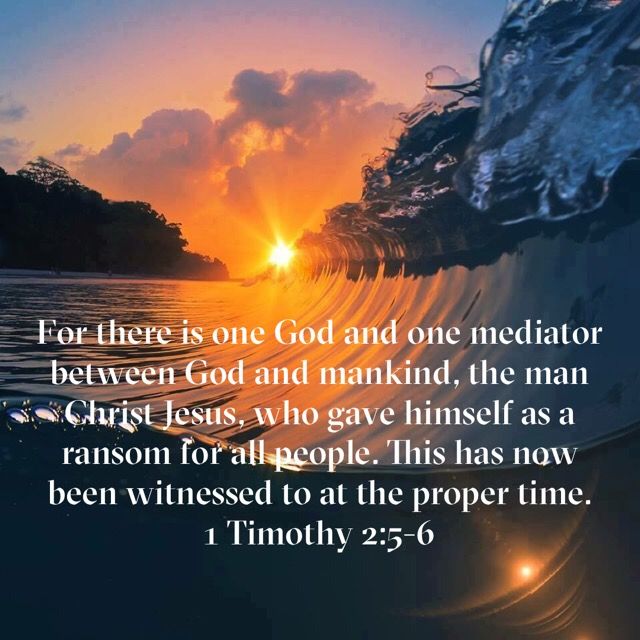 1 Kings 18:20-40 contains one of the most memorable Elijah narratives The great prophet of Yhwh summons the prophets of Baal and Asherah (well known deities in Syria-Palestine) at Mount Carmel for a contest of the gods. At stake is Israel’s allegiance to Yhwh- the living God alive in spirit, embodied in his people 'How long will you go limping with two different opinions? If the Lord is God, follow him; but if Baal, then follow him.” and finally whether Israel will heed the first commandment: “You shall have no other God’s before me” (Exodus 20:3). Elijah begins with an accusatory question addressed to the people: "How long will you go limping with two different opinions? If the Lord is God, follow him; but if Baal, then follow him” (1 Kings 18:21). The people’s unwillingness to choose is exemplified by their lack of a response (v. 21). But for the prophet Elijah, indecision is not religiously neutral ground. They cannot worship both Baal and Yhwh, for to trust the former is to reject the latter. Indecision is not neutral ground. This point is underscored by Elijah’s reference to “limping” (cf. 2 Samuel 4:4). According to him, their indecision is not morally neutral ground; in fact, their unwillingness to choose actually results in self-inflicted injury. Needless to say, while the people aren’t up for choosing between Baal and Yhwh, they are most certainly up for a battle of the gods (1 Kings 18:22-24). Elijah proposes a contest by fire. He calls for two bulls, cut in pieces, laid on wood. The prophets would then “call on the name of” their respective gods. The God who “answers by fire is indeed God” (v. 24). As 1 Kings 18:24 suggests, what Elijah is proposing is about much more than mere pyrotechnics. In fact, this narrative isn’t fundamentally a power contest At All! At stake -is which- God answers prayer. In other words, whom could the people truly trust with their petitions? Which of the two deities would actually deliver on promises? And the narrative makes abundantly clear that there can be only one answer to these questions. The prophets of Baal do all they can to gain their god’s attention, even to the point of inflicting harm on themselves. They “called on the name of Baal from morning until noon” (1 Kings 18:26), “they cried aloud” (v. 28), they even “cut themselves with swords and lances,” and “they raved on until the time of the offering of the oblation” (v. 29). The narrator leaves absolutely no room for doubt about the status of Baal: "there was no voice, no answer, and no response” (v. 29). Elijah loses no time in mocking his opponents: “Cry aloud! Surely he is a god; either he is meditating, or he has wandered away, or he is on a journey, or perhaps he is asleep and must be awakened” (v. 27). The name of Baal is finally useless, and trust in him is shown to be misplaced. A similar story is found in Bel and the Dragon, one of the “apocryphal” additions to Daniel. In this story, Daniel proposes a contest, to see if Bel (a title of the Babylonian deity, Marduk) will actually consume the offerings left to him by the priests. Not only does Bel not show any appetite for his meal, Daniel proves that the priests and their families actually eat the meal. After the priests left their offering and the doors of the temple were sealed, Daniel coated the floor of the temple with ashes. In the morning, after opening the sealed temple, the footprints of the priests and their families were found in the temple. Bel, like Marduk, was shown to be no god at all. Polemics against the non-existence of foreign deities was common in late Israelite literature (cf. Isaiah 44:9-20; 45:20-25; 46:1-7). But Elijah approaches prayer in an entirely different manner to the prophets of Baal. He repairs the altar to Yhwh (1 Kings 18:30), and in a way that brings to mind God’s promises to Israel: “Elijah took twelve stones, according to the number of the tribes of the sons of Jacob, to whom the word of the Lord came, saying, “Israel shall be your name”; with the stones he built an altar in the name of the Lord” (vv. 31-32). In a strong allusion to Jacob’s own contest with a “man,” Elijah points to the moment when “Israel” received its name (Genesis 32:29). Elijah, like Jacob, was also engaged in a deadly contest. What gives Elijah prayerful access to the one true God is God’s -Name- and God’s promises. By these alone does Elijah prevail over the prophets of Baal, who have no ground for their hope. What the false prophets find is a god who is hidden, out of sight and out of earshot. The account of Elijah and the prophets of Baal is recorded in 1 Kings 18. After Israel had gone more than three years without rain as a judgment for their idolatry, the prophet Elijah confronts the evil king Ahab and challenges him to a spiritual showdown. The king was to have all Israel gather at Mt. Carmel, along with the 450 prophets of the false god Baal and the 400 prophets of the false goddess Asherah (verse 19). On Mt. Carmel, Elijah said to the people of Israel, “How long will you waver between two opinions? If the Lord is God, follow him; but if Baal is God, follow him” (1 Kings 18:21). The people remained noncommittal at that point. Elijah then challenged the prophets of Baal to prepare a bull as an offering for their god—Elijah would do the same—with this catch: they could light no fire on their altar. The God who answered with fire from the sky would be considered the true God (verses 22–25). The people agreed that this was a good plan, and the prophets of Baal went first. The pagan prophets cried out and danced around their altar from morning till noon with no answer from Baal. Elijah began to mock them, saying, "Shout louder! . . . Surely he is a god! Perhaps he is deep in thought, or busy, or traveling. Maybe he is sleeping and must be awakened” (1 Kings 18:27). So the prophets of Baal “shouted louder and slashed themselves with swords and spears, as was their custom, until their blood flowed. Midday passed, and they continued their frantic prophesying until the time for the evening sacrifice” (1 Kings 18:28–29). Despite hours of effort, nothing happened. The historian’s comment hints at the emptiness of Baal-worship: "There was no response, no one answered, no one paid attention” (verse 29). Elijah then called the people to him as he repaired the altar of the Lord. He used twelve stones and dug a trench around the altar. He then placed wood on the altar and laid the cut pieces of the bull on it. Elijah then had the people douse the altar with twelve large jars of water. The water soaked the sacrifice and the wood and filled the trench (1 Kings 18:30–35). Once the sacrifice was ready, Elijah prayed, “Lord, the God of Abraham, Isaac and Israel, let it be known today that you are God in Israel and that I am your servant and have done all these things at your command. Answer me, Lord, answer me, so these people will know that you, Lord, are God, and that you are turning their hearts back again” (1 Kings 18:36–37). Then God did what Baal could never do: the fire of the LORD fell from heaven and consumed the burnt offering and the wood and the stones and the dust, “and also licked up the water in the trench” (verse 38). The people of Israel bowed down and declared the Lord as God (verse 39). Elijah then commanded the people to put the prophets of Baal to death, in keeping with God’s command in Exodus 22:20. Following this event, the Lord finally ended the drought and sent rain upon the land (1 Kings 18:45). The miraculous event of fire from heaven was an answer to the prayer of Elijah. God was seeking to turn the hearts of His people back to Himself. He used a time of drought to get their attention and then, through His prophet, performed a dramatic miracle right before their eyes. No one who witnessed that event doubted that the Lord was God and that Baal was a powerless wannabe. The repentance of the Israelites was soon followed by God’s provision of rain. James teaches us that “the prayer of a righteous person is powerful and effective” (James 5:16), and he uses Elijah’s prayer life as a case in point: “Elijah was a human being, even as we are. He prayed earnestly that it would not rain, and it did not rain on the land for three and a half years. Again he prayed, and the heavens gave rain, and the earth produced its crops” (James 5:17–18). 1 Kings 18 is the eighteenth chapter of the Books of Kings in the Hebrew Bible or the First Book of Kings in the Old Testament of the Christian Bible. The book is a compilation of various annals recording the acts of the kings of Israel and Judah by a Deuteronomic compiler in the seventh century BCE, with a supplement added in the sixth century BCE. This chapter belongs to the section comprising 1 Kings 16:15 to 2 Kings 8:29 which documents the period of Omri's dynasty. The focus of this chapter is the activity of prophet Elijah during the reign of king Ahab in the northern kingdom. Elijah and Obadiah (18:1–16) The main theme of the narrative is drought and rain. As the land of Israel including the king suffered under the drought, YHWH sent for Elijah to bring about the crisis and then the solution to the conflict between the worship of two deities. Before Elijah faced Ahab, one (God-fearing) minister, named Obadiah (meaning: 'servant of YHWH') became an intermediate. Obadiah was also the one helping to hide YHWH's servants during a purge of prophets by queen Jezebel(apparently the reason of Elijah's journey to the river of Kerith into the foreign territory of Phoenicia in Zarephath), so when Elijah unexpectedly standing before him, Obadiah fell to the ground in fear and respect. Similar miraculous transport of God's prophets is noted in Ezekiel 3:14, 11:1, cf. 2 Kings 2:11. After many days the word of the Lord came to Elijah, in the third year, saying, “Go, show yourself to Ahab, and I will send rain upon the earth.”
.As soon as Ahab met Elijah, he tried to hold the prophet responsible for the calamity befallen Israel, calling Elijah 'the troubler of Israel' (verse 17; cf. Joshua 6:18; 7:25 concerning Achan, whose sin brought God's judgment on Israel) .[9] Elijah immediately threw the accusation back at Ahab for the apostasy sin of him and his father's house forsaking YHWH and following the Baals.[9][13] In Joshua 7, the identity of the true 'troubler of Israel' was revealed in public before "all Israel", so in this case, Elijah wanted "all Israel" to gather on Mount Carmel, a place near to the Phoenician border, to resolve the matter. The people of Israel at this point seemed not to hold YHWH monotheism anymore as they didn't react to the choice Elijah offering at all: 'YHWH or Baal' alone, but they agreed to witness the competition (while the prophets of Baal didn't reply to the challenge). A miracle must bring truth to light, and it was quickly revealed that the Baals are incapable of doing this, even after their priests performing the whole cultic and ritual activities of Baalistic religion (as reliably reported in this narrative: the 'prayer, rhythmic movements, and self-mortification building up to ecstasy', verses 26–29). This violent cultic frenzy of Baalistic activities with 'swords and lances' (=spears) was attested by an Egyptian traveller "Wen-Amon" or "Wenamun", who around 1100 BCE witnessed it in Byblos, a Phoenician coastal city north of Jezebel's hometown of Sidon. By contrast, YHWH-religion only requires the spoken word (prayer) to immediately produce miracles. The people who saw the demonstration of divine power quickly turned to YHWH's side with a call of faith, 'The LORD indeed is God', which unmistakably recalls Elijah's name ('my God is YHWH'), so the personal conviction of Elijah then became that of the people of Israel. Elijah answered; "Now therefore send and gather all Israel to me at Mount Carmel, and the 450 prophets of Baal and the 400 prophets of Asherah, who eat at Jezebel's table."
And Elijah took twelve stones, according to the number of the tribes of the sons of Jacob, to whom the word of the Lord had come, saying, "Israel shall be your name."
https://www.biblestudytools.com/bible-study/topical-studies/who-are-the-144000-in-revelation-14-bible-meaning-and-verses.html In Revelation 14, we meet 144,000 people, who “had the name of Jesus and the Father on their foreheads.” And this is an interesting picture here. Who are these 144,000 people? What Does the Number 144,000 Mean? Well, one thing that's helpful to remember in Revelation, is that numbers mean things, sometimes in a different way than they do in historical narratives because Revelation is an “apocalyptic work” that shows this thing by pictures. It seems to represent all of God's people, from the Old Testament and the New Testament. The 12 Tribes of Israel… times the 12 apostles and those that they represent… times a very great number: 1,000. And so 12 x 12 x 1,000 is 144,000. And these are marked with the Seal of God on their foreheads. This shows us that they bow to the Lamb and to His Father, and we can contrast this with the Mark of the Beast that appears on those who do not belong to the Lamb. And so instead of being sealed, they merely have the Mark of the Beast, which indicates being owned not by the Lamb, but by the Beast. And that they follow his ways. And so there's a contrast between the 144,000 in Revelation 14 and those who are sealed with the Name of the Lamb and His Father and those that do not have that” seal” on them. The Lamb and the 144,000 (Revelation 14:1-5) "Then I looked, and behold, on Mount Zion stood the Lamb, and with him 144,000 who had his name and his Father's name written on their foreheads. And I heard a voice from heaven like the roar of many waters and like the sound of loud thunder. The voice I heard was like the sound of harpists playing on their harps, and they were singing a new song before the throne and before the four living creatures and before the elders. No one could learn that song except the 144,000 who had been redeemed from the earth. It is these who have not defiled themselves with women, for they are virgins. It is these who follow the Lamb wherever he goes. These have been redeemed from mankind as firstfruits for God and the Lamb, and in their mouth no lie was found, for they are blameless. The Messages of the Three Angels (Revelation 14:5-13) "Then I saw another angel flying directly overhead, with an eternal gospel to proclaim to those who dwell on earth, to every nation and tribe and language and people. And he said with a loud voice, "Fear God and give him glory, because the hour of his judgment has come, and worship him who made heaven and earth, the sea and the springs of water." Another angel, a second, followed, saying, "Fallen, fallen is Babylon the great, she who made all nations drink the wine of the passion of her sexual immorality." And another angel, a third, followed them, saying with a loud voice, "If anyone worships the beast and its image and receives a mark on his forehead or on his hand, he also will drink the wine of God's wrath, poured full strength into the cup of his anger, and he will be tormented with fire and sulfur in the presence of the holy angels and in the presence of the Lamb. And the smoke of their torment goes up forever and ever, and they have no rest, day or night, these worshipers of the beast and its image, and whoever receives the mark of its name." Here is a call for the endurance of the saints, those who keep the commandments of God and their faith in Jesus. And I heard a voice from heaven saying, "Write this: Blessed are the dead who die in the Lord from now on." "Blessed indeed," says the Spirit, "that they may rest from their labors, for their deeds follow them!" Elijah brings rain (18:41–46) The triumph of Elijah on Mount Carmel seems to make king Ahab even listen to Elijah's word, that the king should eat and drink while expecting the rain to come soon. The return of the rains is another triumph for Elijah, who called for rain seven times (verses 42–44) and as the rain started to pour, Elijah had the 'hand of the LORD' grasping him so he could run ahead of the royal chariots for more than 20 kilometres (12 mi) from Carmel to Jezreel. Thus, the opening conflict of 16:32–33 and 17:1 is resolved by proving YHWH to be the only effective God. Verse 46; And the hand of the Lord was on Elijah; and he girded up his loins, and ran before Ahab to the entrance of Jezreel.
In 1 Kings 22:19-23,
there is a troubling passage in which we are told that God used a lying spirit to deceive Ahab. Does God really use evil, lying spirits to do His bidding? Why would God do such a thing? To find the answer to this question, we need to learn a little background about King Ahab, and also understand something about the sovereignty of God. King Ahab was the son of Omri, and he reigned over Israel in Samaria for 22 years (1 Kings 16:29). Continuing the example of his father, Ahab did evil in the sight of God by worshiping Baal and “did more to provoke the Lord God of Israel than all the kings of Israel that were before him” (1 Kings 16:33). Ahab again and again proved he was bent on evil, evidenced by his continued refusal to listen to the prophet Elijah’s warnings . Ahab accused Elijah of troubling Israel by the drought, but Elijah declared that it was Ahab’s own sin that caused the troubles for the nation (1 Kings 18:18). Since Ahab had declared war on God by killing His prophets God then brought the war to Ahab in the form of a contest (1 Kings 18:19-40) between the four hundred and fifty prophets of Baal on one side, and Elijah on the other. When God miraculously verified Elijah’s status as His true prophet, Ahab should have repented, but he remained in his sinful rebellion, fueled by the wicked anger of his wife, Jezebel. In many subsequent incidents, God again showed His power and mercy to Ahab, but the king refused to submit and obey Him. Finally Jehoshaphat, king of Judah, came to visit him and Ahab persuaded him to join in battle to take Ramoth-Gilead from the Syrians. Wisely, Jehoshaphat insisted that they seek God’s will in the matter, so Ahab brought 400 false prophets together, who all assured him that God would give them victory (1 Kings 22:6). Jehoshaphat recognized their falsehood and asked whether a true prophet of God could be summoned. Ahab acknowledged that Micaiah was a true prophet, but he hated him, because “he never prophesies anything good about me, but always bad” (1 Kings 22:8). Micaiah was brought before the kings and delivered God’s final warning to Ahab. He said that if they went to war, they would be defeated and left without a king. Ahab replied, “didn’t I tell you that he never prophesies anything good about me, but only bad?” (1 Kings 22:18). Ahab was again rejecting the clear warning from God, and choosing a path of wicked rebellion. In response to Ahab’s constant choice of sin, God revealed some of the inner workings of the spiritual world. God had already pronounced a death sentence upon Ahab (1 Kings 20:42, 21:19), but had given him opportunity to repent of his wickedness. With this final rejection of God’s counsel, God determined to carry out the death sentence. Since Ahab continued to prefer the lies of his false prophets over the truth given by God’s prophets, God chose to use the false prophets to carry out His plan. When God asked for volunteers to “entice Ahab into attacking Ramoth Gilead and going to his death there” (1 Kings 22:20), a spirit (fallen angel/demon) said he would be a lying spirit in the mouth of the prophets. God gave the spirit permission to proceed, and Ahab received the message he desired. God chose to use a lying spirit because Ahab rejected God’s rebukes and warnings -all through his life- and the cup of God’s wrath was full. Since God is sovereign over all of creation, He is not restricted in what or whom He can use to accomplish His holy purposes. All of creation is under His authority, and He chooses to use people and spirits, both good and evil, to bring His divine plans to pass and bring glory to Himself. “He does as he pleases with the powers of heaven and the peoples of the earth. No one can hold back his hand or say to him: ‘What have you done?’" (Daniel 4:35). In the case of Ahab, God chose to using a lying spirit to accomplish His perfect and righteous plan (Psalm 18:30). The lying spirit will receive its punishment just as Ahab did, and those who repent of their sins will receive forgiveness just like Ahab could have. The real question is, “Will I respond to God’s warnings with faith and obedience, or will reject His counsel and be rejected by Him?” https://youtu.be/ksqH6OHrkYs
In the midst of one of the most beautiful and hope-giving Messianic passages is the universally condemning statement that “all we like sheep have gone astray” (Isaiah 53:6, ESV). Like sheep we have all turned to our own path rather than faithfully following our Shepherd. Because of that great deficiency, we have need of a Savior, and in God’s grace Christ pays the penalty for our sin—“The Lord has caused the iniquity of us all / To fall on Him” (Isaiah 53:6, NASB 1995). In theological terms, the idea that “all we like sheep have gone astray” is sometimes called original sin. Isaiah explains that “all of us have become like one who is unclean, / And all our righteous deeds are like a filthy garment” (Isaiah 64:6, NASB). None are exempt from the universal curse of guilt. As Paul reiterates, “There is none righteous, not even one” (Romans 3:10, BLB) and “There is no one who does what is good, not even one” (Romans 3:12, CSB). All are guilty, and all are without excuse (Romans 1:20). Even though Adam and Eve were created in the likeness and image of God (Genesis 1:26–27, 5:1–2), when they had children, those children were also in the likeness and image of Adam (Genesis 5:3), and they carried the stain and curse of Adam’s sin. Sin and death entered the world through Adam and spread to all (Romans 5:12), and because of his sin all of humanity is dead in sin (Romans 5:15). Not only are we all positionally dead in sin (Ephesians 2:1–3), but also “all we like sheep have gone astray.” We have actively all gone the wrong way. We have all sinned and fallen short of God’s glory (Romans 3:23). But because of His love for His world (John 3:16), while we were all still dead in sin (Ephesians 2:4–5), Christ died on our behalf (1 Corinthians 15:3) to pay the penalty and endure the judgment for our sin so that we would not have to. We can receive that gift of His grace by faith (belief, or trust) in Him (Ephesians 2:8–9), and when we believe we are “born again” (John 3:5–7)—we are made alive (Ephesians 2:5), we are made new creatures in Christ (2 Corinthians 5:17), and we created as new people for good works that He prepared for us (Ephesians 2:10). While “all we like sheep have gone astray,” we don’t have to continue on that path of walking in deadness, sin, and shame. God has provided a new path for us (2 Corinthians 5:17), and He has given us the tools and the strength to walk in newness of life (Romans 6:4). All we like sheep have gone astray, yet we have been forgiven so much. For this cause, we should rejoice in God’s grace, thankful for His provision of forgiveness and righteousness (Colossians 3:15–17). Like a good shepherd, our Savior has loved us and given Himself for us so that we might live (John 10:11). Now that we have new life, we can recognize that our lives are not our own (Galatians 2:20), but we now belong to Him—we are now in Him and have every spiritual blessing in the heavenlies in Christ (Ephesians 1:3). The Lion of the tribe of Judah is a symbol found in Genesis and Revelation. In Genesis, Jacob blesses his son Judah, referring to him and his future tribe as a lion’s cub and a lion (Genesis 49:9). In Revelation, this symbol is seen again when the Lion of the tribe of Judah is declared to have triumphed and is worthy to open the scroll and its seven seals (Revelation 5:5). Jesus is the One who is worthy to open the scroll (see John 5:22). Therefore, Jesus is the Lion of the tribe of Judah.
In Genesis, as Jacob blesses his children, he promises Judah that his brothers will praise him and that they will bow down to him. Jacob also tells Judah, “You are a lion’s cub, Judah; you return from the prey, my son. Like a lion he crouches and lies down, like a lioness—who dares to rouse him?” (Genesis 49:9). Jacob says that in the future the scepter and ruler’s staff will not depart from Judah “until he to whom it belongs shall come and the obedience of the nations shall be His” (Genesis 49:10). This messianic prophecy points forward to the second coming of the Lord Jesus, the descendant of Judah who will rule the earth (Revelation 19:11–16). Based on Jacob’s blessing, the lion is a symbol of the tribe of Judah, which is known as the kingly tribe (King David was of the tribe of Judah). Lions symbolize power, fierceness, and majesty. Lions are the king of the beasts, and the Lion of the tribe of Judah is the king of everything. In the Old Testament, God is sometimes described as being like a lion. In Isaiah 31:4, just “as a lion growls, a great lion over its prey—and though a whole band of shepherds is called together against it, it is not frightened by their shouts . . . so the LORD Almighty will come down to do battle on Mount Zion and on its heights.” The Lord is not afraid of His enemies. He protects His people and does not allow them to be conquered. In Hosea, God is angry at Israel because they became proud and forgot Him. God says, “I will be like a lion to them. . . . like a lion I will devour them. . . . You are destroyed, Israel, because you are against me, against your helper” (Hosea 13:7–8). It is better to experience the help and protection of the Lion than to deny His kingship and face His fierceness. In Revelation 5, Jesus is the long-awaited Lion of the tribe of Judah. John weeps because no one was found worthy to open the scroll of God’s judgment or even to look inside it. Then one of the elders says to John, “Do not weep! See, the Lion of the tribe of Judah, the Root of David, has triumphed. He is able to open the scroll and its seven seals” (Revelation 5:4–5). Both of the genealogies in Matthew and Luke record that Jesus is a descendant of the tribe of Judah. When Jesus is revealed as the promised Lion of the tribe of Judah, it reveals His deity. He is the true king and the One to whom belongs the long-awaited obedience of nations. Yet it is not His fierceness or the force of His power that makes Him worthy. The Lion has triumphed because He became a Lamb (Revelation 5:6–10; cf. John 1:29). Jesus Christ is worthy because He lived a perfect, sinless life and in shedding His blood defeated sin and death. His death and resurrection have resulted in a protection for His people and an eternal kingdom that will honor and worship God. Ruling this kingdom will be Jesus, the Lion of the tribe of Judah. 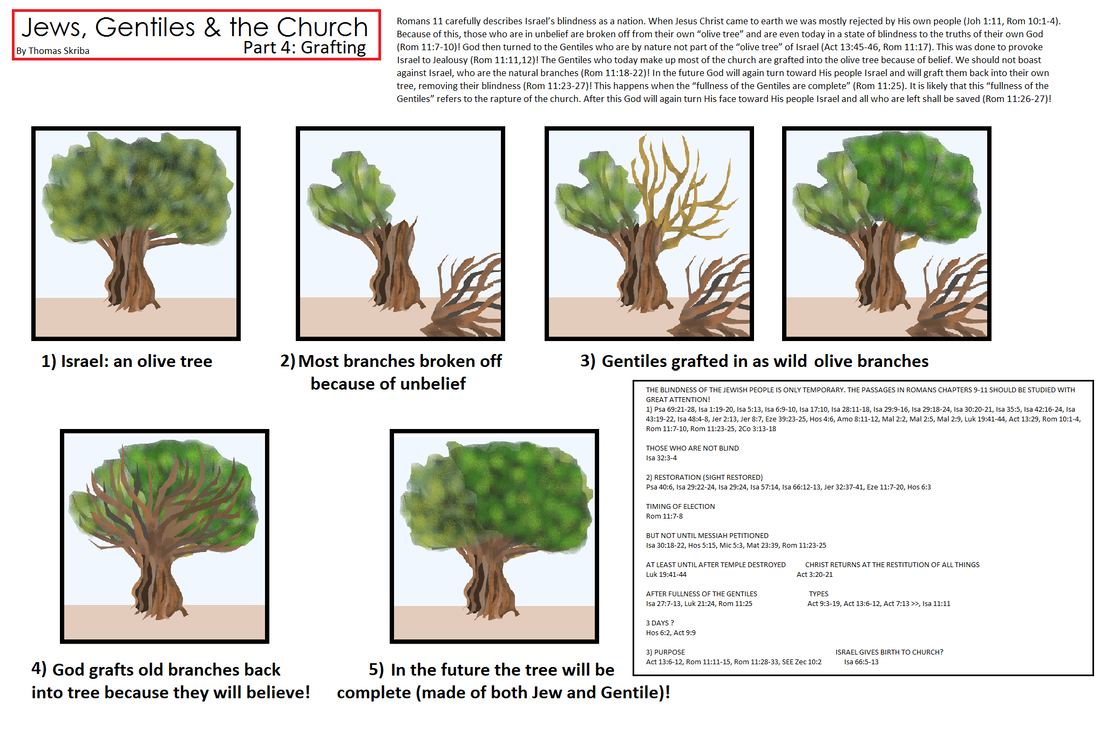 The Church has not replaced Israel and God has not finished with His chosen people, and should anyone doubt this truth, they should familiarise themselves with three chapters in Romans where Paul details their past history (chapter 9) their present position (chapter 10) and God's future plans for His people (chapter 11). Due to pride and disobedience, Israel were set aside for a season. Because they rejected their Messiah and because of their unbelief and apostate ways, God's promised kingdom of peace and prosperity on earth was postponed. However, Israel's terrible loss became a glorious gain for the Gentiles, for by His grace He redeemed believing men and women from every nation and language – every kindred and tribe. The nation of Israel may have broken their covenant with God, rejected their Messiah, and failed to complete in the good work that God had prepared them to do, but their sinful lack and foolish rebellion meant that the rest of the world received great blessings: "Their stumbling brings untold wealth for the world, and their failure, riches for the Gentiles." The Law of Moses, the Psalms of David, and the prophetic writings of holy men of God, had painted a clear and exciting picture of Jesus, their long-awaited Messiah. He was to come as their anointed King in fulfilment of God's redemptive plan for mankind. But Israel had wandered far from the Lord. They chased after foreign gods and sadly they missed the day of their visitation, which angered the Lord and caused Him to punish His disobedient people and set them aside, for a season. Israel still has a spirit of slumber and are blind - in part, which has continued throughout the entire Church age. Because of their unbelief, God gave His errant nation a spirit of stupor, with ears that were deaf to His voice and eyes that were unable to see the truth of the glorious gospel of God. This was not to be a permanent impediment, but would prove to be a stumbling block to those who would not believe on His name. The spirit of stupor would be a prolonged period during the 'dispensation of grace' when God would call out of the Gentiles a people for His name. Blindness in part is to continue to the end of the Church age, when all Christians will be removed at the Rapture and at long last, Israel will be reinstated as God's witness on earth – and the gospel of the kingdom will be preached throughout the world. Not all Israel received this shocking spirit of slumber. Only those who rejected Him as their God and Saviour had blinded eyes and deafened ears. But as Paul pointed out, "IF Israel’s stumbling brought such wealth for the world, and their failure produced riches for the Gentiles, how much more will their full number bring?" How much greater will be the blessings and abundant riches for the Gentiles, when the nation of Israel finally recognises Jesus as Lord and welcomes Him as their Messiah and King? What Is the Promised Land?
In the Bible, the term “Promised Land” refers to a specific region of land that God endowed to His chosen people, as part of their heritage. (Genesis 12, Genesis 26:3, Genesis 28:13) God first gave this pledge of land to Abraham saying, “I will establish your borders from the Red Sea to the Mediterranean Sea, and from the desert to the Euphrates River.” He then reiterated the vow to Abraham’s descendants until the time came for His people to claim their inheritance. The "Promised Land" was the geographic area God declared to give to his chosen people, the offspring of Abraham. The promised land was placed in ancient Canaan, on the eastern side of the Mediterranean Sea. Numbers 34:1-12 discusses the location of the Promised Land: The Promised Land of Canaan“The LORD said to Moses, “Command the Israelites and say to them: ‘When you enter Canaan, the land that will be allotted to you as an inheritance is to have these boundaries: “Your southern side will include some of the Desert of Zin along the border of Edom. Your southern boundary will start in the east from the southern end of the Dead Sea, cross south of Scorpion Pass, continue on to Zin and go south of Kadesh Barnea. Then it will go to Hazar Addar and over to Azmon, where it will turn, join the Wadi of Egypt and end at the Mediterranean Sea. “Your western boundary will be the coast of the Mediterranean Sea. This will be your boundary on the west. “For your northern boundary, run a line from the Mediterranean Sea to Mount Hor and from Mount Hor to Lebo Hamath. Then the boundary will go to Zedad, continue to Ziphron and end at Hazar Enan. This will be your boundary on the north. “For your eastern boundary, run a line from Hazar Enan to Shepham. The boundary will go down from Shepham to Riblah on the east side of Ain and continue along the slopes east of the Sea of Galilee. Then the boundary will go down along the Jordan and end at the Dead Sea. “This will be your land, with its boundaries on every side.” For migrating herders like the Jews, having a stable home of their own would be a true blessing. The promised land was a place to rest from their continual wandering. But this promise came with conditions. First, God commanded that Israel, the name of the new nation, had to trust and follow Him. Second, God demanded faithful worship of Him (Deuteronomy 7:12-15). Idolatry was such a grave transgression to God that he threatened to remove them out of the promised land if they worshiped other gods. Through a famine, Jacob also named Israel, went to Egypt with his family, where there was food. Over the years, the Egyptians turned the Jews into slaves for labor. After God delivered them from that slavery, he returned them to the promised land, under the guidance of Moses. However, because the people neglected to obey God's law, he made them wander in the desert for 40 years until that generation had died. Moses' heir Joshua finally led the people in and served as the military commander in taking over the Promised Land. Following Joshua's death, Israel was ruled by a succession of judges. The people frequently regressed to idolize false gods and suffered due consequences. Eventually, God allowed the Babylonians to destroy the Jerusalem temple and take most of the Jews into bondage to Babylon. Ultimately, they returned to the promised land, but under Israel's kings, devotion to God was inconsistent. God sent prophets to remind His people to repent, concluding with John the Baptist. What Made the Promised Land Unique? The promised land of Canaan, eventually called Israel, was a fertile land with brooks and deep springs that gushed out into the valleys and hills. The rich soil produced wheat and barley, vines and fig trees, pomegranates, and olives. There, the Israelites would lack nothing. Described in Scripture as “a land flowing with milk and honey,” the soil was rich for agriculture and shepherding, the mountains provided security and protection from the elements and their enemies, and the arid climate provided perfect conditions for livestock to thrive. (Exodus 3:17; Numbers 13:27, Deuteronomy 8:6-9) Abraham knew that he would not see God’s promised land with his own eyes. In fact, God made it clear to him that the land would not be given until four generations had passed, and that his descendants would face the hardship of slavery before they would enjoy the home God had promised. (Genesis 15:12-16) But Abraham held on to the promise, believing that God could and would bring His descendants into their promised land. When Would God’s Promise Be Fulfilled? In preparation to fulfill the promise He’d made to Abraham and his descendants, God placed Abraham’s great-grandson, Joseph in Egypt. When a seven-year famine made it increasingly difficult for the Israelites to find food, God used Joseph’s high position under Pharoah to save His people, the Israelites, from starvation. After Joseph’s generation died, the Israelites continued to thrive in Egypt. Then, “a new king, to whom Joseph meant nothing, came to power in Egypt. ‘Look,’ he said to his people, ‘the Israelites have become far too numerous for us. Come, we must deal shrewdly with them or they will become even more numerous and, if war breaks out, will join our enemies, fight against us and leave the country.’” (Exodus 1:8-10) For four hundred years the Egyptians forced God’s people into harsh and brutal slave labor, but this didn’t keep them from multiplying and spreading. In fact, the Egyptians became so fearful of Israel’s population explosion that Pharoah eventually ordered the prompt murder of all the Hebrew, newborn males. (Exodus 1:22) Moses was among the newborn babies to be slain. However, just as God had predestined Joseph to save his people from famine, He spared Moses’s life so that He could use him to deliver Israel from Egypt’s oppression--and ultimately lead them into the land promised to Abraham’s descendants. (Exodus 2:23-25) After Moses led God’s people out of Egypt and through the Red Sea, the time had finally come for Israel to realize the fulfillment of God’s long-awaited promise. In one miraculous display after another, God had clearly shown Himself mighty to save. Now, the Israelites needed only to believe God and follow His servant Moses into the desert wilderness that would lead them to the promised land. The Faith of Joshua and the Fear of Israel Through their deliverance from Egypt, the Israelites had witnessed first-hand God’s provision, His power, and His faithfulness to the promises made to their ancestors (Genesis 15:14, Exodus 15:1-21)) And God continued to provide for all their needs. As they began their journey to Canaan, God provided food and water. (Exodus 16:12-15, Exodus 15:25) He provided clothes and shoes that never wore out. (Deuteronomy 29:5) He gave them His law. (Exodus 5:6-21) And most importantly God gave the Israelites the gift of His sheltering and guiding presence. (Exodus 13:21) When the Israelites reached the border of the promised land, in Kadesh Barnea, God instructed Moses to, “Send out for yourself men to spy out the land of Canaan, which I am giving to the Israelites.” Until that time the whole region near Canaan had been inhabited by wicked nations, who were driven by idolatry (Deuteronomy 9:4). Because of the sinful nature of these nations, not because of Israel’s rightness, God determined to drive them out and turn the land over to His children. But when Israel’s spies returned from their survey of the land, they were afraid and spread their fear to the Israelites. Instead of trusting in God’s continued deliverance and provision, the spies relied on their own flawed wisdom, based on the dangers they saw during their expedition. Their report included tales of unconquerable rulers, impossible odds, and super-human giants. (Numbers 13:32) Of the twelve spies, only Joshua and Caleb spoke the truth about Canaan based on God’s promise. “The land we passed through and explored is exceedingly good. If the Lord is pleased with us, he will lead us into that land, a land flowing with milk and honey, and will give it to us. Only do not rebel against the Lord. And do not be afraid of the people of the land, because we will devour them. Their protection is gone, but the Lord is with us. Do not be afraid of them.” (Numbers 14:6-7). The doubting Israelites wanted to stone Joshua and Caleb after their faith-filled report. They couldn’t imagine overcoming the odds stacked against them. They fell into deep despair and wept bitterly. Disgusted with the Israelites continued unbelief, grumbling, and complaining God considered destroying the His people with a plague (Numbers 14:11) until Moses interceded. Although God chose to forgive His people--their unbelief had cost them the privilege of ever entering the land of promise. (Numbers 14:23) Instead, they would wander the wilderness for forty years until all the adults were buried right outside the border of the promised land. Then, their children would have a chance to prove themselves faithful to God and enter Canaan. Only Joshua and Caleb, the two faithful spies, were exempt from God’s just punishment. What Can We Learn from This Bible Story? "The Israelites wilderness situation was ordained to get them ready for the promise. Unfortunately, their patterns of behavior kept them stuck for far longer than God intended,” explains Victoria Riollano. The Israelites’ continued acts of rebellion were an outward manifestation of a much bigger issue—their lack of faith. Even though God had repeatedly demonstrated His trustworthiness to the Israelites, they allowed fear to keep them from resting in His continued provision. That same unchecked fear would eventually keep them from entering the land God had promised. Believers are faced with the choice between faith and fear on a regular basis. In fact, James 1:3 tells us that God tests our faith on purpose so that He can produce in us perseverance and maturity in Christ. The good news is that we don’t have to combat fear alone. We’re invited to cast our cares on God, and we’re promised that His perfect love casts out all fear. (1 Peter 5:7, 1 John 4:18) The New Promised Land: Kingdom of Heaven When Jesus Christ arrived in Israel, he brought a new covenant accessible to all people, Jews, and Gentiles alike. At the end of Hebrews 11, the popular "Hall of Faith" section, scripture remarks that people of the Old Testament "were all commended for their faith, yet none of them received what had been promised." (Hebrews 11:39) They may have received the land, but they still looked to the future for the Messiah—that Messiah is Jesus Christ. The kingdom of God is now established on earth through Christ, and will be fulfilled with Israels return to the promised land, when they as a nation discover their messiah is Jesus Christ. Because Israel was entrusted with God's laws, but do not practice his laws, their inability to trust their messiah will bring the end of the age. Jesus Messiah will redeem the nation of Israel to prove he can redeem even the biggest catastrophe. One day, at the end of the Tribulation, all of surviving Israel will “look on Me whom they have pierced” (Zech. 12:10). Israel’s repentance will be complete, and they will inhabit the future kingdom over which Christ will reign as their Messiah. Then and only then will Israel fully possess the land promised to them. God is faithful to His Word—to Israel and to us! His face is hidden from those who do not believe or trust his authorship. All in God's good timing...The wandering in the wilderness will be over! He's in the game of redemption! Whoever believes in Christ as their Savior becomes a resident of the kingdom of God. As Jesus explained to Pontius Pilate, “My kingdom is not of this world. If it were, my servants would fight to prevent my arrest by the Religious leaders. But now my kingdom is from another place.” (John 18:36) We will see the promised land when Israel as a nation, turns to the name of Yeshua, Hebrew messiah as Lord, and ushers in the messianic kingdom for good! 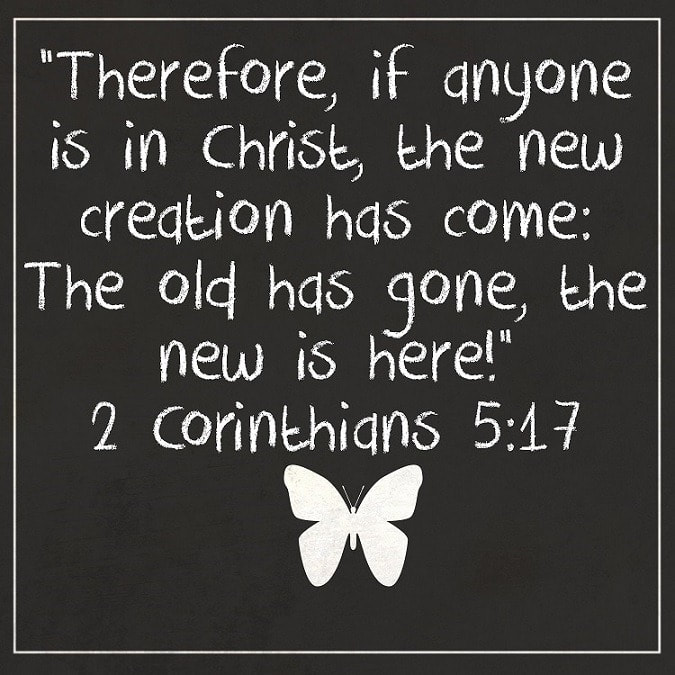 Is God calling you? God’s call will go to the core of who you are and what you do. ‘I have called him… and he will succeed in his mission.’ Isaiah 48:15 NIV God told Jeremiah, ‘Before you were born, I set you apart for a special work.’ (Jeremiah 1:5 NCV) When God decides to use you, five things happen: First, there is a call. God asks common people to do uncommon things, like Peter getting out of a boat and walking on water. Second, there is fear. When God called Moses to stand before Pharaoh, he basically said, ‘I’m not a good enough speaker; use somebody else.’ Third, there is reassurance. The thought of filling Moses’ shoes must have shaken Joshua to the core, so God told him, ‘As I was with Moses, so I will be with you.’ (Joshua 1:5 NKJV) Fourth, there is a decision. Sometimes we say ‘yes’ to God and sometimes we say ‘no’. When we say ‘yes’ we live with joy; when we say ‘no’ we forfeit that joy. But there’s always a decision. Fifth, there is a changed life. Those who say ‘yes’ to God’s call don’t walk perfectly, not by a long shot. But because they say ‘yes’, they learn and grow even from their failures. Indeed, their failures often become part of their ability to minister to others. And those who say ‘no’ to God are changed too; they become a little harder, a little more resistant to His calling, and a little more likely to say ‘no’ next time. In the Gospels (Matthew, Mark, Luke, and John), Jesus’ command to "follow me" appears repeatedly (e.g., Matthew 8:22; 9:9, Mark 2:14; Luke 5:27; John 1:43). In many cases, Jesus was calling the twelve men who would become His disciples (Matthew 10:3–4). But other times, He was speaking to anyone who wanted what He had to offer (John 3:16; Mark 8:34). In Matthew 10:34–39, Jesus stated clearly what it means to follow Him. He said, "Do not suppose that I have come to bring peace to the earth. I did not come to bring peace, but a sword. For I have come to turn ‘a man against his father, a daughter against her mother, a daughter-in-law against her mother-in-law—a man’s enemies will be the members of his own household.’ Anyone who loves their father or mother more than me is not worthy of me; anyone who loves their son or daughter more than me is not worthy of me. Whoever does not take up their cross and follow me is not worthy of me. Whoever finds their life will lose it, and whoever loses their life for my sake will find it." Jesus’ bringing a “sword” and turning family members against each other can seem a little harsh after words like "whosoever believes on Him shall not perish" (John 3:16). But Jesus never softened the truth, and the truth is that following Him leads to difficult choices. Sometimes turning back may seem very appealing. When Jesus’ teaching went from the Beatitudes (Matthew 5:3–11) to the coming cross, many who had followed him turned away (John 6:66). Even the disciples decided that following Jesus was too difficult the night He was arrested. Every one of them deserted Him (Matthew 26:56; Mark 14:50). On that night, following Christ meant possible arrest and execution. Rather than risk his own life, Peter denied that he even knew Jesus three times (Matthew 26:69–75). To truly follow Christ means He has become everything to us. Everyone follows something: friends, popular culture, family, selfish desires, or God. We can only follow one thing at a time (Matthew 6:24). God states we are to have no other gods before Him (Exodus 20:3; Deuteronomy 5:7; Mark 12:30). To truly follow Christ means we do not follow anything else. Jesus said in Luke 9:23, "Whoever wants to be my disciple must deny themselves and take up their cross daily and follow me." There is no such thing as a "halfway disciple." As the disciples demonstrated, no one can follow Christ by the strength of his own willpower. The Pharisees were good examples of those who were trying to obey God in their own strength. Their self-effort led only to arrogance and distortion of the whole purpose of God’s Law (Luke 11:39; Matthew 23:24). Jesus gave His disciples the secret to faithfully following Him, but they did not recognize it at the time. He said, "The Spirit gives life; the flesh counts for nothing" (John 6:63). And "This is why I told you that no one can come to me unless the Father has enabled them” (verse 65). The disciples had walked with Jesus for three years, learning, observing, and participating in His miracles. Yet, even they could not follow Him faithfully in their own strength. They needed a Helper. Jesus promised many times that, once He had ascended to the Father, He would send a "Helper" to them—the Holy Spirit (John 14:26; 15:26). In fact, He told them that it was for their good that He was going away so that the Holy Spirit could come (John 16:7). The Holy Spirit indwells the heart of every believer (Galatians 2:20; Romans 8:16; Hebrews 13:5; Matthew 28:20). Jesus warned His followers that they were not to begin testifying of Him "until you have been clothed with power from on high" (Luke 24:49; Acts 1:4). When the Holy Spirit came upon those first believers at Pentecost, they suddenly had all the power they needed to follow Christ, even to the death, if needed (Acts 2:1–4; 4:31; 7:59-60). Following Jesus means striving to be like Him. He always obeyed His Father, so that’s what we strive to do (John 8:29; 15:10). To truly follow Christ means to make Him the Boss. That’s what it means to make Jesus Lord of our lives (Romans 10:9; 1 Corinthians 12:3; 2 Corinthians 4:5). Every decision and dream is filtered through His Word with the goal of glorifying Him in everything (1 Corinthians 10:31). We are not saved by the things we do for Christ (Ephesians 2:8–9) but by what He has done for us. Because of His grace, we want to please Him in everything. All this is accomplished as we allow the Holy Spirit to have complete control of every area of our lives (Ephesians 5:18). He explains the Scriptures (1 Corinthians 2:14), empowers us with spiritual gifts (1 Corinthians 12:4-11), comforts us (John 14:16), and guides us (John 14:26). To follow Christ means we apply the truths we learn from His Word and live as if Jesus walked beside us in person. God is asking for your participation; will you answer him? "LORD, SEND SOMEONE ELSE.” EVER SAID THAT? Do you have a favorite person from the Bible? (Besides Jesus, of course!) Moses is a personal favorite of mine. I find him very relatable. Not the plague thing or the Red Sea thing. It’s that scene at the burning bush (Exodus 3:1-3), but a very specific part of it. Exodus 4:13 was actually one of my ‘life verses’; “But Moses pleaded again, ‘Lord, please! Send someone else.’” It was right up there with, “I can do all things through Christ who strengthens me,” (Philippians 4:13) as long as he doesn’t ask me to do anything. It’s easy to have faith in God and trust him when we’re sitting on the couch binging Netflix. And the truth is, that’s where I related most strongly with Moses, telling God no. Well, more like dragging my feet and whining a lot, hoping that God will eventually get the message and just give up on me and change his mind. I’m wondering if the idea of God as Father comes from us acting like children so much of the time:
THE CALL What exactly was it that Moses was so dead-set against doing, and why? God had gotten Moses’ attention with the burning bush and was now speaking with him. Let’s look at what God was asking. ‘Then the Lord told him, “I have certainly seen the oppression of my people in Egypt. I have heard their cries of distress because of their harsh slave drivers. Yes, I am aware of their suffering. 8 So I have come down to rescue them from the power of the Egyptians and lead them out of Egypt into their own fertile and spacious land. It is a land flowing with milk and honey—the land where the Canaanites, Hittites, Amorites, Perizzites, Hivites, and Jebusites now live. 9 Look! The cry of the people of Israel has reached me, and I have seen how harshly the Egyptians abuse them. 10 Now go, for I am sending you to Pharaoh. You must lead my people Israel out of Egypt”’ (Exodus 3:7-10, NLT). The first thing we notice is that there is a lot about what God has done and will do, and very little with regard to Moses.
Moses was to go and lead. God is going to deliver his people and he wants Moses to lead them when it happens. Who wouldn’t want to be a part of that? So begins one of my favorite conversations in all of Scripture. THE “CONVERSATION "But Moses protested to God, “Who am I to appear before Pharaoh? Who am I to lead the people of Israel out of Egypt?” (Exodus 3:11). Moses knew who he was. He had spent the last 40 years defining himself. He had tried to deliver his people 40 years ago, and that ended in murder and his being rejected by his people. This event is what drove him into the wilderness in the first place. He was an exiled murderer and he knew God was talking to the wrong guy. But God tells Moses exactly who he is; or does he? God answered, “I will be with you” (Exodus 3:12a). Look at what God is saying here:
But Moses protested, “If I go to the people of Israel and tell them, ‘The God of your ancestors has sent me to you,’ they will ask me, ‘What is his name?’ Then what should I tell them?” (Exodus 3:13). Now Moses is talking to God. “Oh yeah? Well who are you?” Moses had been waiting for 40 years, but the Hebrews hadn’t heard from God in over 400. To them, he was literally the God of their ancestors; a people long dead and gone. They knew the stories of Abraham, Isaac and Jacob, but did it mean anything to them? Was God relevant to them now? And that was all just a few hundred years earlier. What expectations are we to have of God when we look back 2,000 years to the time when he walked the earth with the disciples? We hear stories of miracles and great moves of God from the past, but is that the same God who’s calling us now? Is God still relevant today? ‘God replied to Moses, “I AM WHO I AM. Say this to the people of Israel: I AM has sent me to you.” 15 God also said to Moses, “Say this to the people of Israel: Yahweh, the God of your ancestors—the God of Abraham, the God of Isaac, and the God of Jacob—has sent me to you. This is my eternal name, my name to remember for all generations”’ (Exodus 3:14-15). Here, God drops the mic with this phrase, I AM WHO I AM. This is a verb, not a proper noun. It carries with it the idea of identification through action. It also transcends time and has been translation by some scholars as I will be who I will be. God is declaring himself the ever existing one; who I WAS then, is who I AM now, and who I WILL BE in the future. This is not the name that others call God; the descriptors of his character, but what God calls himself. This is the name only God is holy enough to utter. And—just like those who saw the opening of the ark in the movie Raiders of the Lost Ark—Moses’ ears should have exploded on the hearing of it and his face melted off his head. This is God’s name yesterday, today, and forever. Then God goes on for another seven verses, finishing out the chapter as if this should have settled everything with Moses: you’ll say this to the people and they’ll say ok, then you’ll tell Pharoah the plan, but I know he’ll say no, so then I’ll flex and he’ll finally say yes and then you’ll do this… And it should have settled it. But Moses was too broken to fully accept that. He was still too caught up in himself to accept the power and importance of God’s presence in his life. He knew God was wrong about him. ‘But Moses protested again, “What if they won’t believe me or listen to me? What if they say, ‘The Lord never appeared to you’?”’ (Exodus 4:1). This goes back to identity, but not what we think of ourselves. Rather it’s what we think others think about us. We prejudge ourselves before others have a chance to. And doesn’t that all begin with the idea that I’m nobody that God would ever use? This false humility is the most evil form of pride because it says right to God’s face, “You’re wrong about me. I’m not the one you’re looking for. You’ve made a mistake.” When we don’t answer God’s call, we’re saying we know better than he does. Then God answers Moses’ concerns with three miraculous signs. God recognizes the game Moses is playing and pulls out the stops. First there’s this thing with the staff turning into a snake. Then there’s Moses’ hand turning leprous and being restored. And just to make sure there’s no longer any confusion who is God in this situation, God turns water from the Nile into blood (Exodus 4:2-9). Personally, I think this would have made me more nervous. ‘But Moses pleaded with the Lord, “O Lord, I’m not very good with words. I never have been, and I’m not now, even though you have spoken to me. I get tongue-tied, and my words get tangled.”’ (Exodus 4:10). This verse is often said to have the meaning that Moses had a stutter. I don’t think that’s necessarily true. I think it might have had more to do with Moses being an introvert and having spent the last 40 years in the middle of nowhere, with no one but sheep to talk to. I won’t go into why I think Moses was an introvert, but we don’t know exactly what he’s referring to here. What we do know is that Moses lacked confidence in his ability to do what God was calling him to do. Again, he’s questioning God’s judgement. But I don’t really think Moses was intentionally calling God out. I think he was afraid and disparately clawing at any excuse that might get him out of God’s plan. I think he had become so comfortable with his sheep and the situation he ended up in, that he didn’t want to leave. He may have thought he had little time left in this world, so why start some new project? His time to make a difference had passed. ‘Then the Lord asked Moses, “Who makes a person’s mouth? Who decides whether people speak or do not speak, hear or do not hear, see or do not see? Is it not I, the Lord? 12 Now go! I will be with you as you speak, and I will instruct you in what to say”’ (Exodus 4:11-12). I nearly weep at the graciousness behind this verse every time I read it. God is saying, I made you the way you are. I know it’s not easy. Nothing of any worth ever is. Now let’s go. I’m right here with you and I won’t leave you alone. Take my hand, we’ll do this together. I’ll teach you everything you need to know. Does this sound familiar? Come to me; take my yoke; learn from me; I will be with you always (Matthew 11:28-30). God is calling all of us. How will you answer the call? How did Moses? ‘But Moses again pleaded, “Lord, please! Send anyone else”’ (Exodus 4:13). Moses finally resorts to honesty. He didn’t want to do it. Moses was simply afraid. And I think it was this honesty that God had been waiting for. Then the Lord became angry with Moses. “All right,” he said. “What about your brother, Aaron the Levite? I know he speaks well. And look! He is on his way to meet you now. He will be delighted to see you. 15 Talk to him, and put the words in his mouth. I will be with both of you as you speak, and I will instruct you both in what to do. 16 Aaron will be your spokesman to the people. He will be your mouthpiece, and you will stand in the place of God for him, telling him what to say. 17 And take your shepherd’s staff with you, and use it to perform the miraculous signs I have shown you” (Exodus 4:14-17). A lot of the commentaries speak of this passage as a rebuke, that God is so angry that he’s punishing Moses by making him share the spotlight with his brother. Honestly, until I started preparing for this, I saw it the same way. It’s a great motivator, “Do what God calls you to do or he’ll get mad and punish you.” Personally, I’ve grown tired of being scared into following God. The New American Standard Bible is a more literal, word for word translation and puts it this way, “Then the anger of the LORD burned against Moses.” Looking at this more literal sentence structure and the original language, it could also be understood to say, “The face or breath (the countenance) of the LORD enflamed or blazed up.” I think this paints a vivid dual picture of God’s anger and the burning bush. Remember the burning bush? I can imagine the gentle warming flames flashing into a raging inferno in response to Moses’ declaration, the scorching heat pushing him back in startled terror. God had gotten Moses’ attention. He was letting Moses know that he’s not going to win this argument. Moses was getting too comfortable standing there talking to smoldering shrubbery. It was time for Moses to feel the heat. Those previous signs were just that; God manipulating the world. This was an experience of the raw power of God. What does Jesus tell us again? I will give you rest for I am gentle and humble in heart (Matthew 11:29). Remember I AM, the same yesterday, today, and forever. And look at what follows. God, again, goes out of his way to accommodate Moses. Oh look, there’s your brother who’s “just happening” to be coming this way, and what do you know, he’s a great speaker. What luck! And it says Aaron was already coming to see Moses, before this whole thing started. God is not going to call you to do something without providing you with everything you need to accomplish his work. You may not get everything you want. And it may not be easy. But I can tell you from experience, well, a little experience, that it’s a blessing beyond description. ANSWERING THE CALL How do you know you’ve been called? Right there in the second half of Exodus 3:12, “And this is your sign that I am the one who has sent you: When you have brought the people out of Egypt, you will worship God at this very mountain.” The fact that you’re here today is the sign that you have been called. God has called you for something; that’s why you’re here. What is it that God is calling you to do? What have you been trying to avoid? What Excuses have you been making? It’s nothing God hasn’t already heard. Or maybe you’re right where God wants you, doing what he has for you to do, but you’re stressed and burned out because you’re relying too much on your own ability. What might you need to let go of? Or maybe you’re doing God’s will and are constantly blessed and joyful. In that case, you really need to be up here sharing with us your secret. What does answering the call look like? I can show you one example of what answering the call looks like. It looks like me following through on God’s call for me to share this message with you. What will it look like for you? I have no idea. Maybe it’s to go to another country with the Gospel. Or maybe just next door. Maybe it’s going to the homeless on the street, or maybe a family member you haven’t spoken to in a while. Maybe God’s given you a testimony and he wants you sharing it, or maybe he’s leading you to serve in some other way. What God has called you to do is between you and God and whoever he might have called you to. What is God saying now? I have come down to this earth, I have seen through your eyes, I have heard through your ears, I have experienced your suffering. I came to rescue you from the power of sin in your lives and lead you into a new kingdom flowing with mercy and grace. Now go! God is sending you out into the world to lead people to him. I want to leave you today the way Moses left the people of Israel he had been leading for 40 years. Passing the mantle of leadership to Joshua, Moses—the man who was afraid to talk to Pharoah—stands before hundreds of thousands of Hebrews and declares, “be strong and courageous! Do not be afraid. The Lord will prepare the way and be with you” “So be strong and courageous! Do not be afraid and do not panic before them. For the Lord your God will personally go ahead of you. He will neither fail you nor abandon you” (Deuteronomy 31:6). God is calling you, but it’s up to you to respond. In 1 Timothy 2:4 it says: “God desires all men to be saved and to come to the knowledge of the truth.” God has an incredible plan, and He wants to use you! He wants to save you from a life of sin and unhappiness, to a life of true peace and joy. He wants to prepare you for eternity. He wants to use your life to glorify His name. God is calling you. He loves you and wants to help you! So how does God call you? Maybe you meet someone whose godly life challenges you, or you read or hear something that creates a longing for something more. Maybe you try to live a good life and react in a good way, but always fall short, and you feel empty deep down inside. This is God calling you. He is drawing you, but it’s up to you to respond. In Hebrews 1:1-2 it says, “God, who at various times and in various ways spoke in time past to the fathers by the prophets, has in these last days spoken to us by His Son.” God sent His Son Jesus to earth as a human being, where He experienced the same temptations and trials we do, but never gave in to sin. In this way He left us an example to follow. Now He is inviting you to let Him into your life, to guide, strengthen and help you live the same overcoming life. “Behold I stand at the door and knock. If anyone hears My voice and opens the door, I will come in to him and dine with him and he with Me.” Revelation 3:20. This call of love is like a powerful magnet, always pulling in one direction; to turn completely from everything that is bad, corrupt, evil and self-seeking (sin) towards God’s Son Jesus Christ, to follow His example and come to a life of righteousness, peace and joy. But the choice is always yours, because God has given you a free will. Opening your heart to Jesus is making a decision to stop living for yourself completely, and giving Him full control, as your Lord and Savior. It is a totally life-changing decision. You don’t have to carry on sinning, losing your temper, being irritable, being offended. Jesus came to save you, and make a way out of all these things, and this amazing new life is what God will lead you into, step by step, if you will answer His call. Don’t let anything hinder you from making life’s most important choice – open the door of your heart to Jesus today! |
|
|
|
|
|
|
|
|
Paragraph. Clicca qui per modificare.
|
Paragraph. Clicca qui per modificare.
|
Paragraph. Clicca qui per modificare.
|
Paragraph. Clicca qui per modificare.
|
Paragraph. Clicca qui per modificare.
|
|

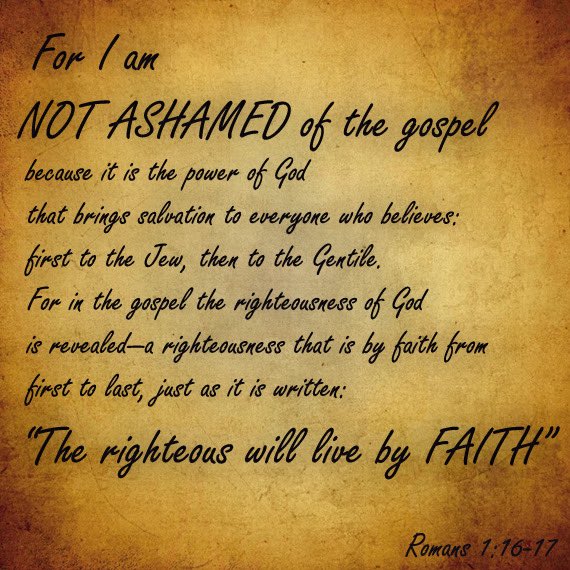
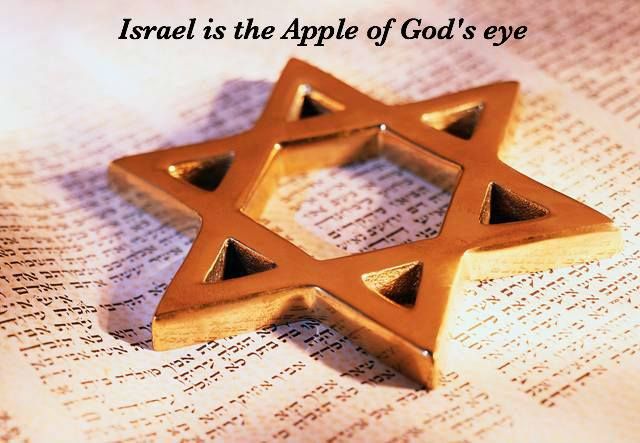

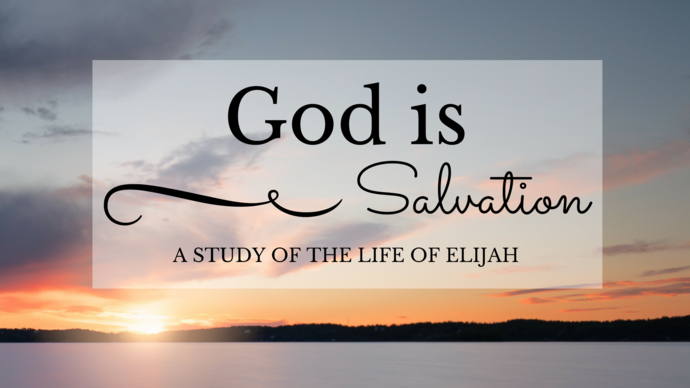
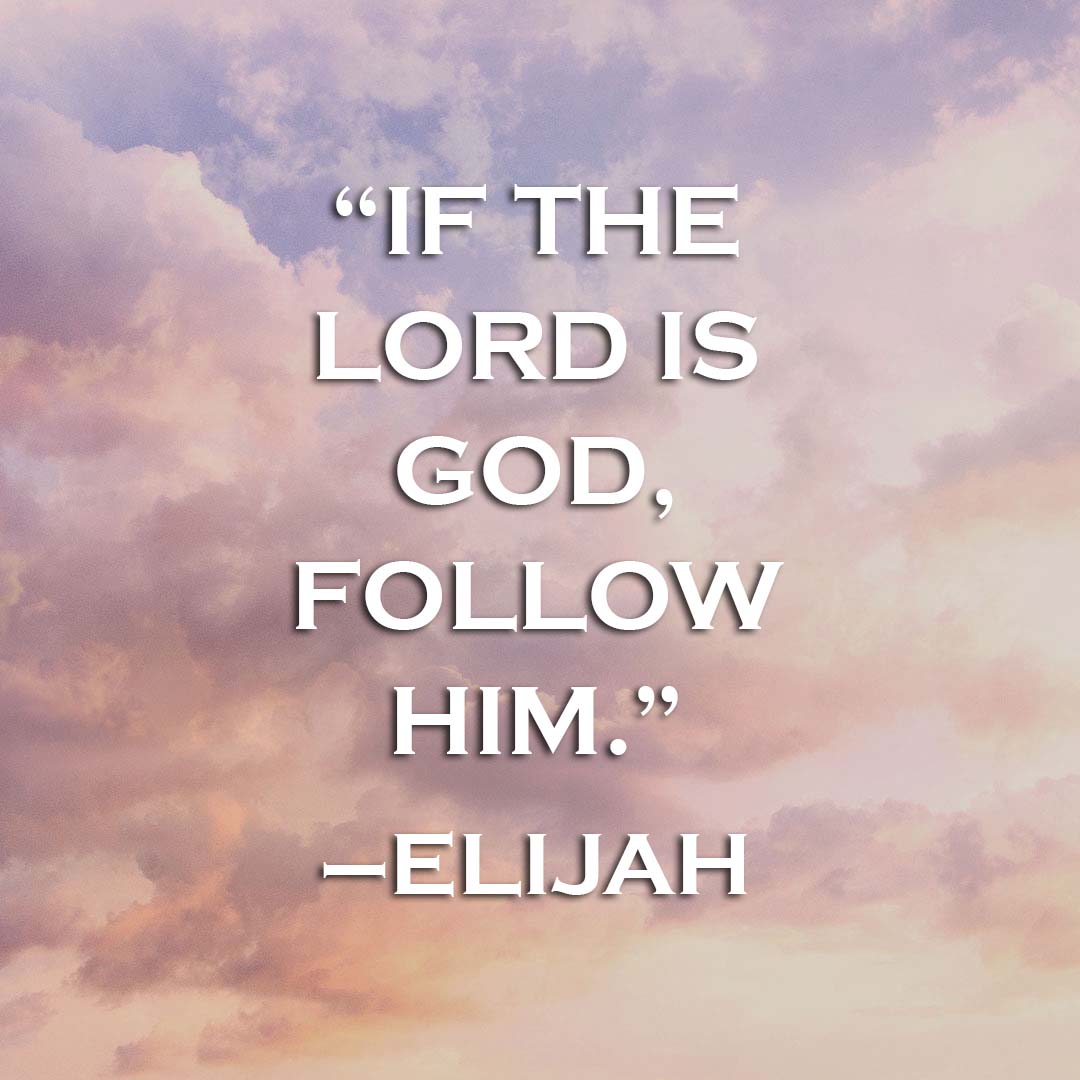
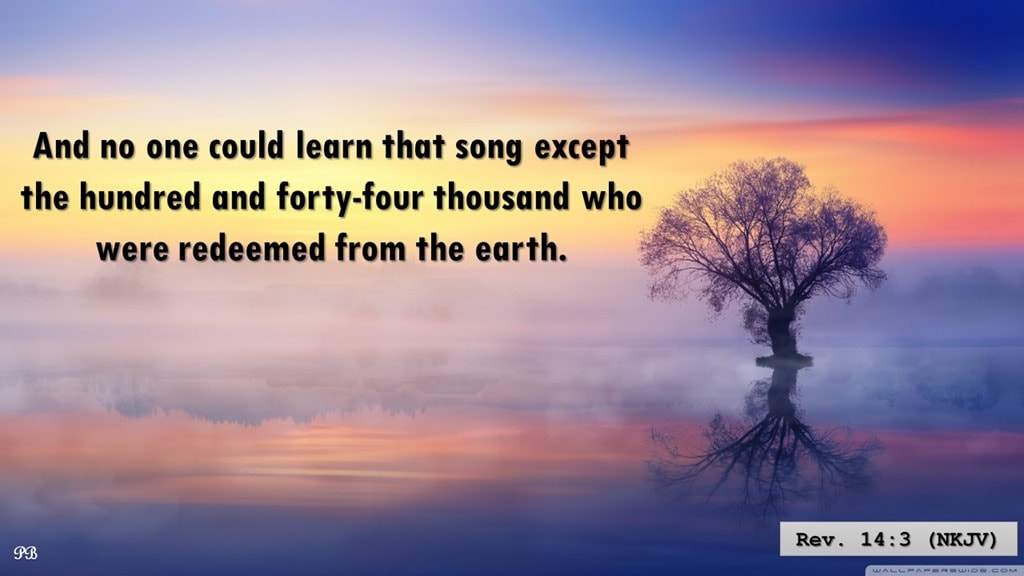

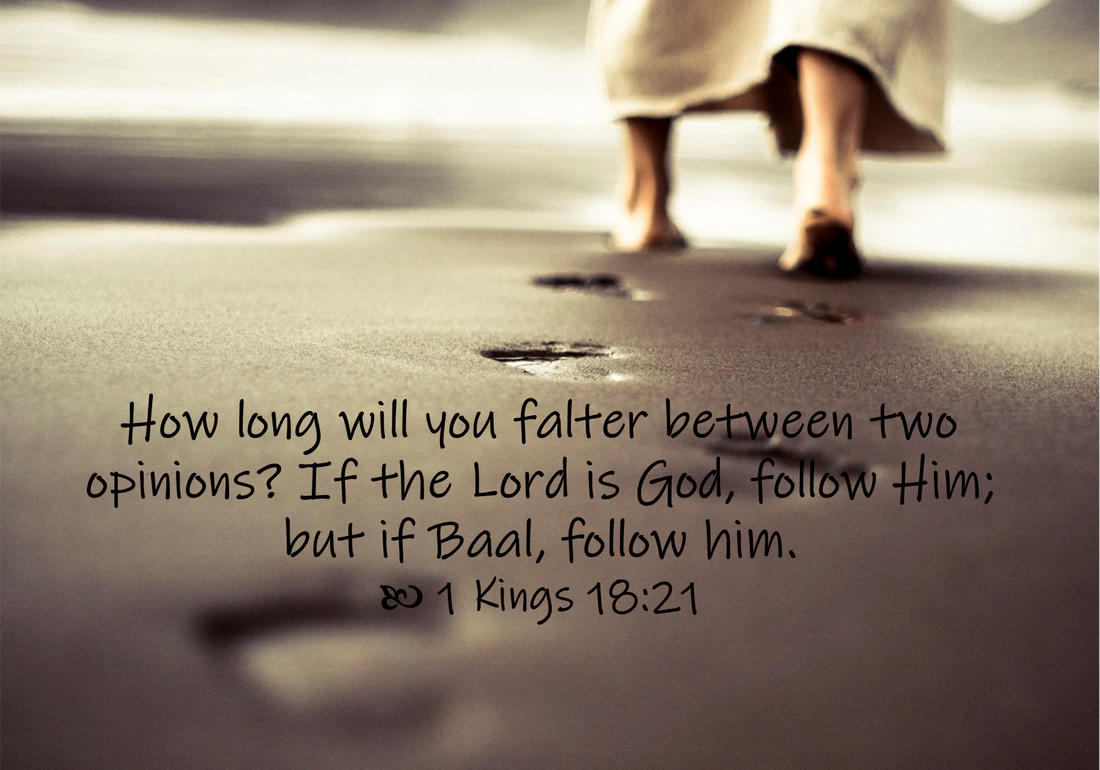

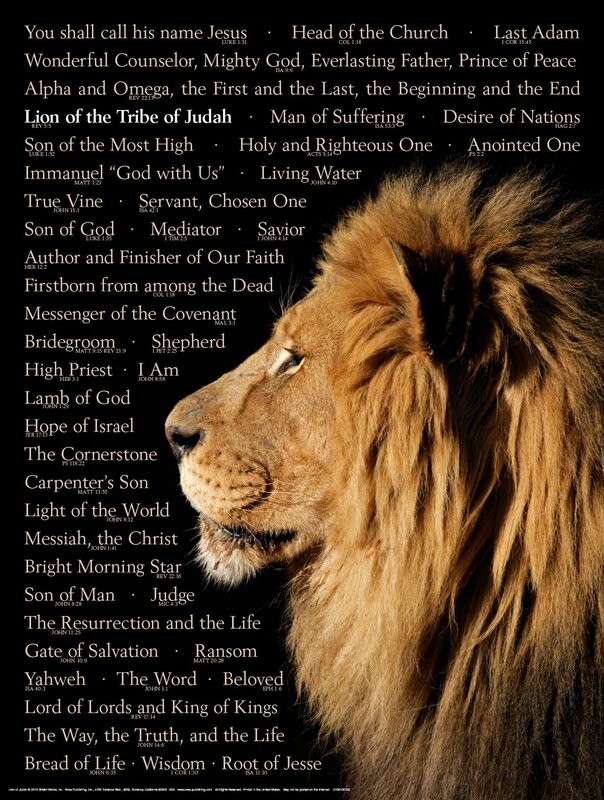
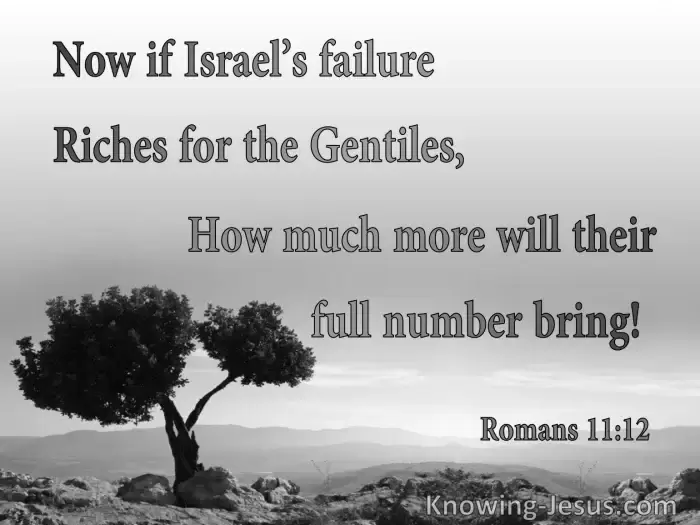

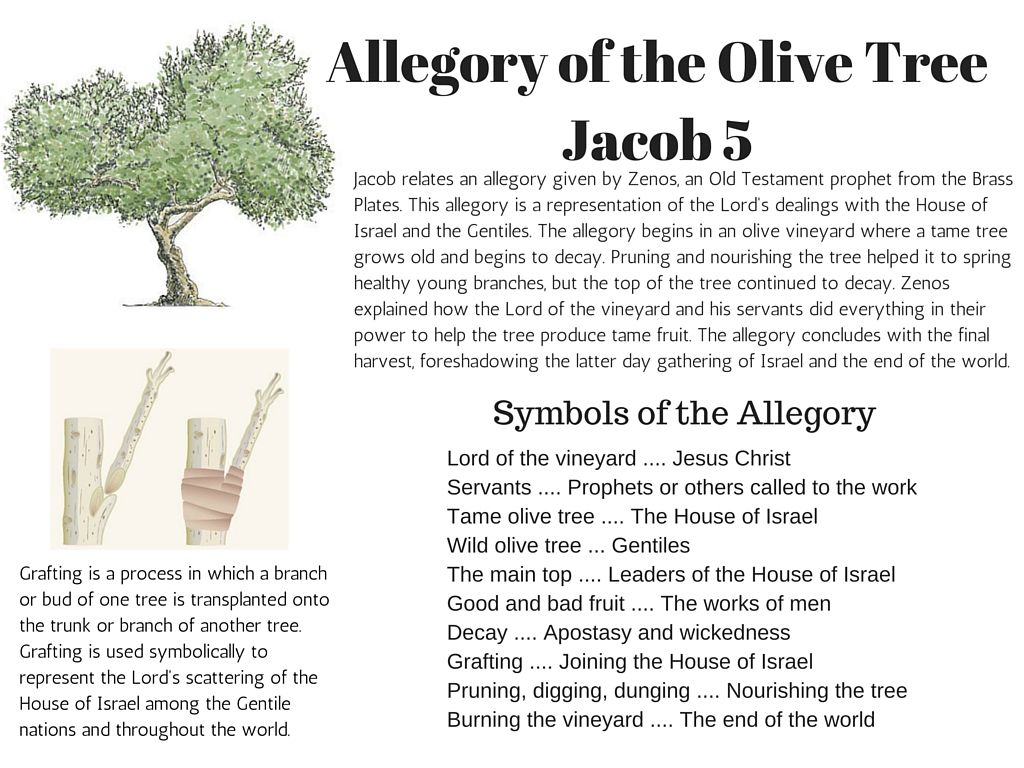
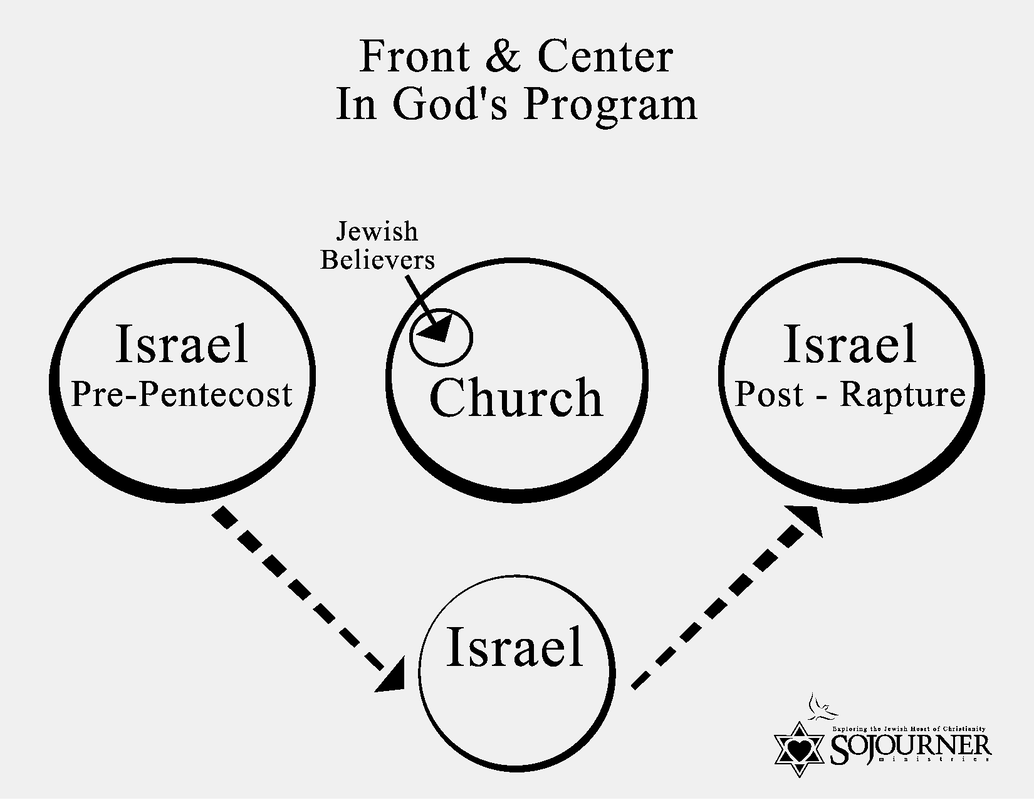

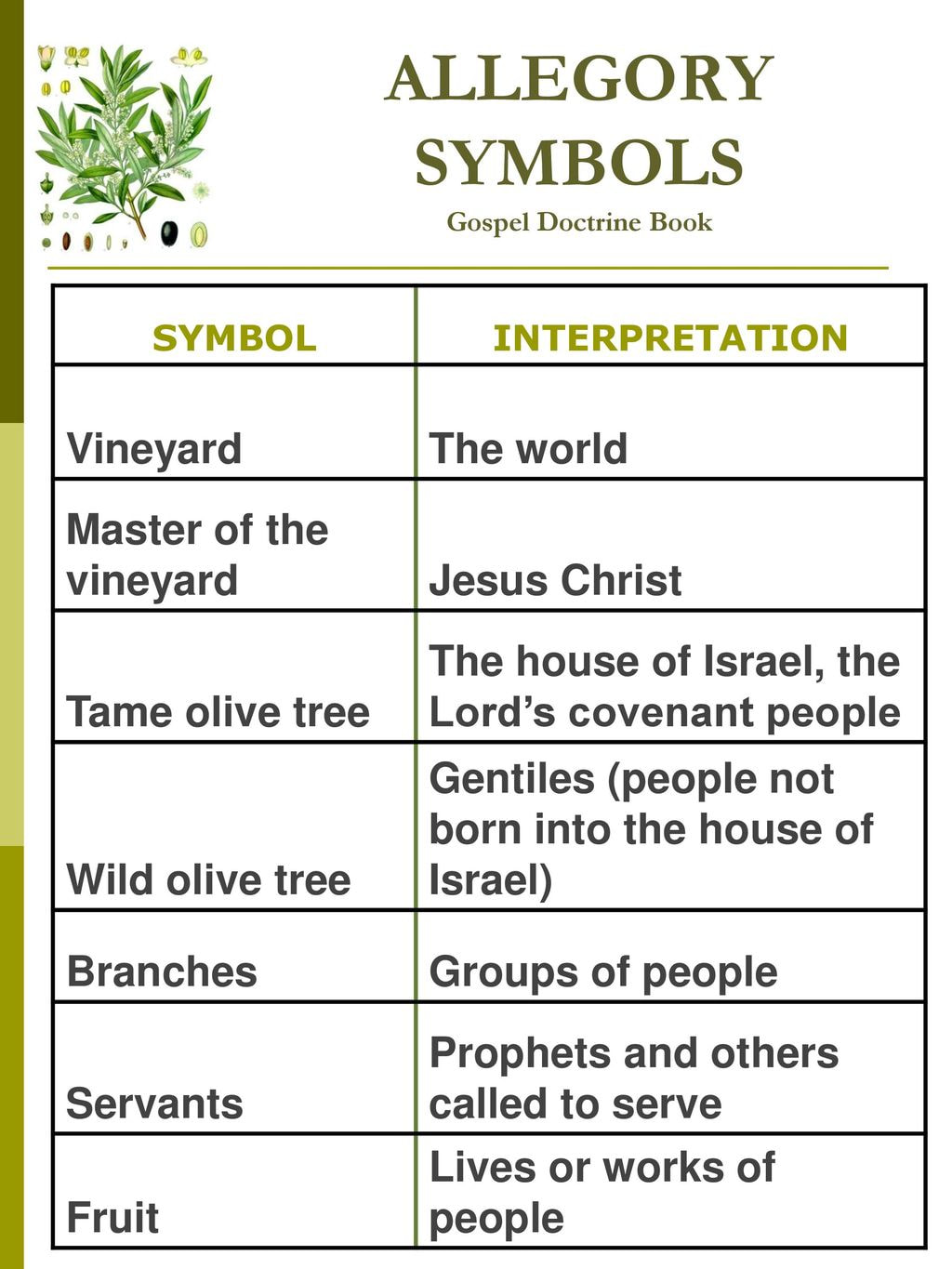
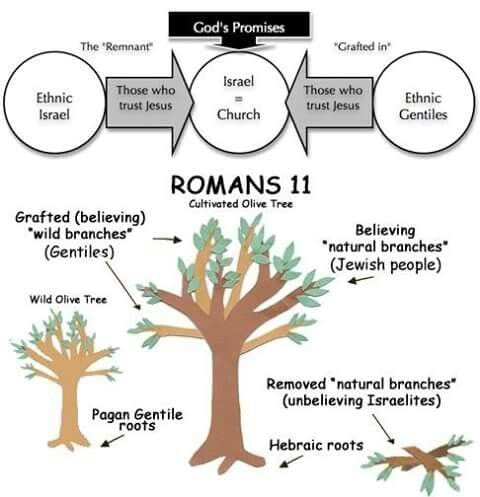
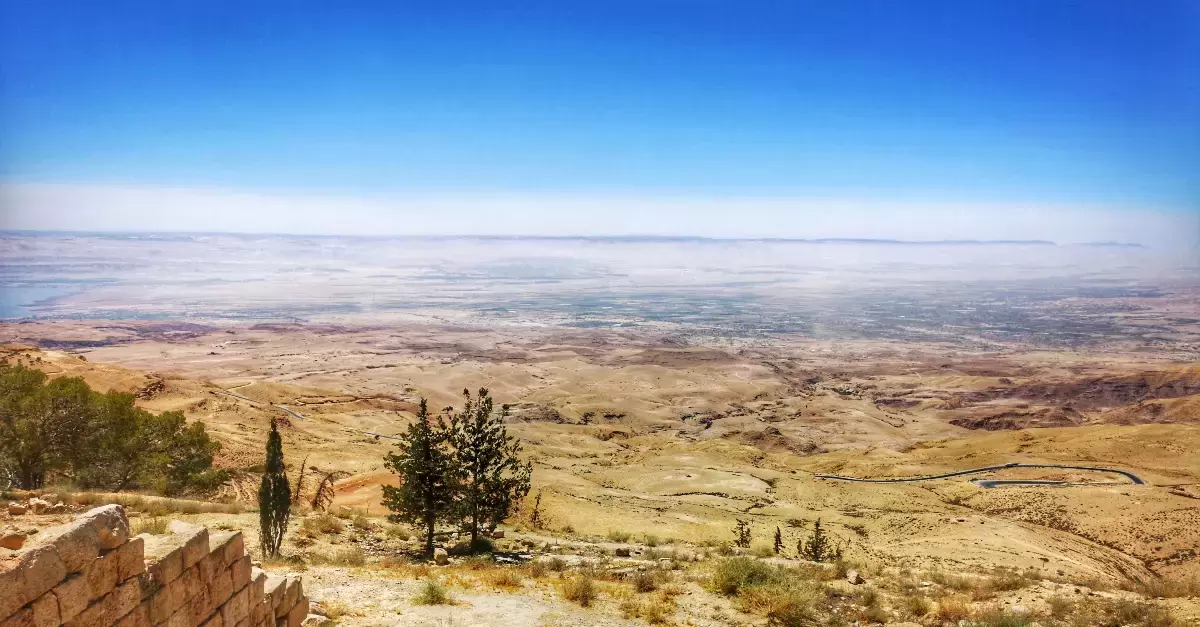


 RSS Feed
RSS Feed





















































